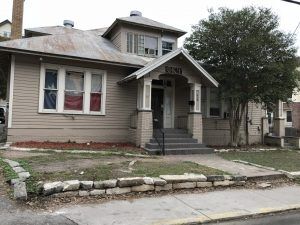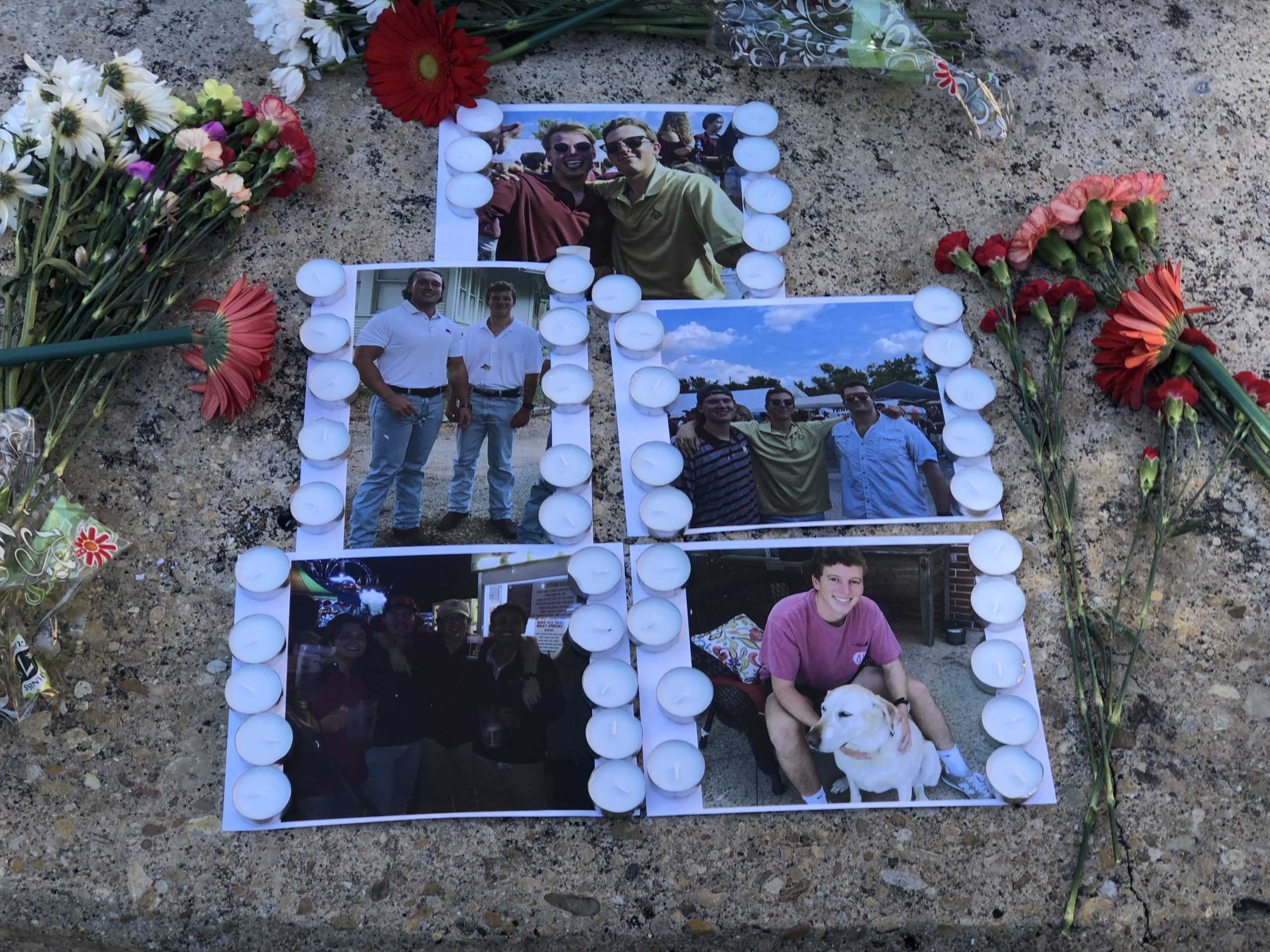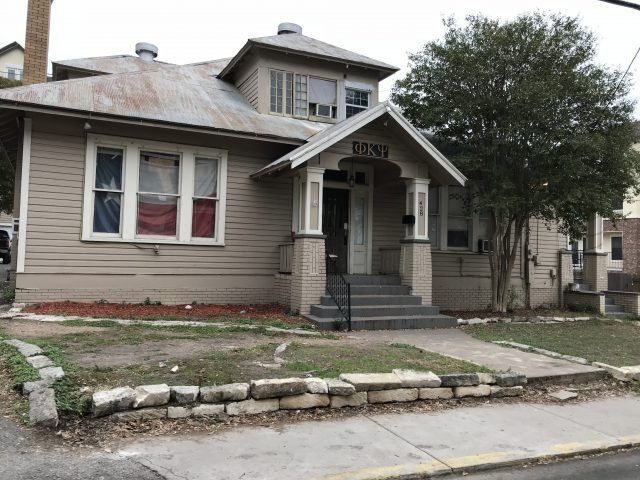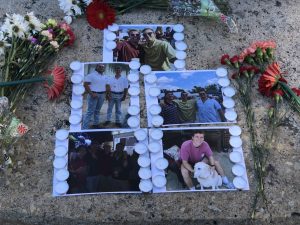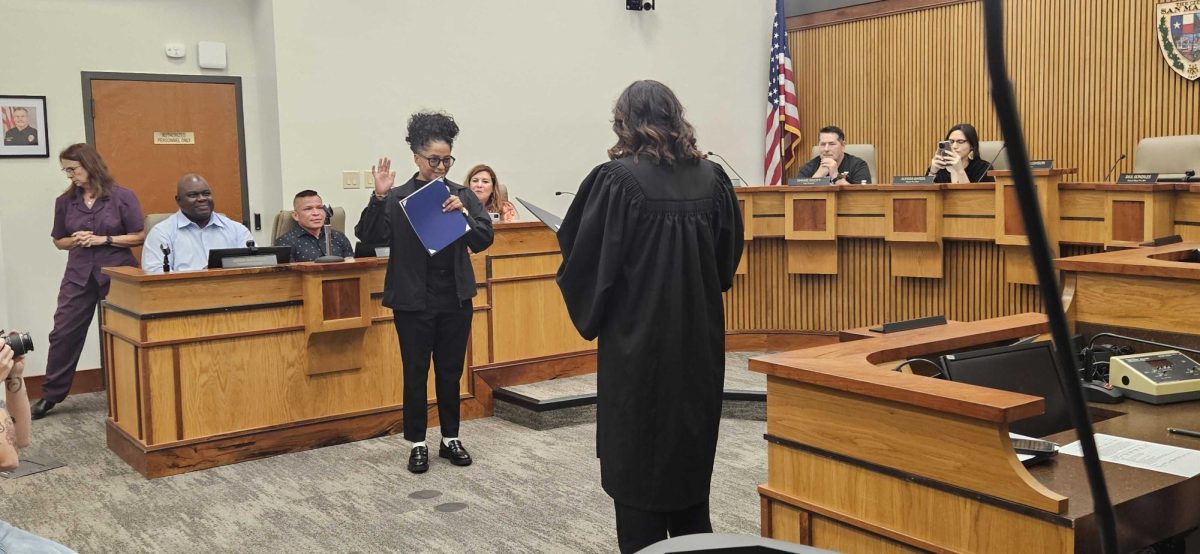Back home, Ellis’ memory is well kept by family and friends
Matt Ellis looked forward to coming to Texas State and joining a fraternity when he transferred from a junior college. But as soon as he found a family with Phi Kappa Psi, tragedy struck.
On the morning of Nov. 14, 2017, friends found Ellis, a 20-year-old business sophomore from Humble, Texas, unresponsive in a local apartment. Later, an autopsy revealed he died of alcohol poisoning, with a blood alcohol level of 0.38 — four times the legal limit.
Ellis’ mom, Lisa Ellis, was at work that day when her husband came to pick her up and deliver the news. In the year since Matt Ellis’ death, the Ellis family has been trying to move forward despite the difficulty of losing a loved one. In tears, Lisa Ellis said not a day goes by where she and her family don’t think about Matt.
“It’s been very difficult. We’ve had a lot of support from family, friends and our church family,” Lisa Ellis said. “We’ve just been trying to move forward, trying to make positive changes in our personal lives.”
Matt Ellis’ family remembers him as a loving, good-hearted person who loved to play tennis. According to his mother, Matt Ellis frequently taught the game to children in the neighborhood.
“He had such a great smile and laugh,” Lisa Ellis said. “Whenever he walked into a room, he just lit it up.”
Matt Jimenez, a junior at Schreiner University, met Matt Ellis at an early age and was one of his closest friends throughout school.
“He was one of the only people I knew who wasn’t afraid to be 100 percent himself,” Jimenez said. “He wasn’t afraid to speak his mind. He was genuine.”
Jimenez and Matt Ellis played tennis and were in Boy Scouts of America together. Jimenez’s fondest memory of Matt Ellis is when both decided to leave their lacrosse team in middle school to take up tennis, following in Matt Ellis’ brother’s footsteps. The duo often played as a team or against one another.
“Just knowing he’s in a better place now… It was a horrible tragedy and I wasn’t sure how to take it, losing someone so close,” Jimenez said. “But he’s safe now.”
Matt Ellis graduated in 2016 from Humble’s Atascocita High School. Beyond tennis, he enjoyed listening to music, watching movies and hanging out with friends and family.
Matt Ellis was also a member of the United Methodist Action Reach-Out Mission by Youth through Kingwood United Methodist Church. He had dreamed of going to Costa Rica on a mission trip with the program.
In the aftermath, Texas State reinvents Greek Life as safer, more responsible
Matt Ellis’ death marked the beginning of Texas State’s attempt to shift the culture of on-campus Greek Life. After student deaths, a suspension of all fraternities and sororities and a review of policies, Greek Life now stands as a measurably different institution.
Eladio Escovar, an electronic media senior, was elected as vice president of the Interfraternity Council the day Ellis was found unresponsive. Half an hour after the election, administrators sat Escovar and other councilmembers down in a private meeting and briefed them on Ellis’ death.
“After that news came out, we knew this year was going to be a tough year,” Escovar said. “We were going to have to reevaluate what (Greek Life) means to us, to the community.”
Immediately after Ellis’ death, the university formed a task force of 24 faculty, staff, advisors, alumni and students to review the policies and governance of Greek Life organizations on campus. While under review, all fraternities and sororities were suspended by order of University President Denise Trauth.
After a four-month-long suspension, fraternities and sororities were reinstated March 1, 2018, with the condition each organization signs off on the new policies. These policies included at most a four-week educational period for recruits, required training sessions prior to social events and stricter GPA requirements to be eligible to host social events.
In practice, all rejoined except Kappa Sigma Theta-Lambda, which said the new rules were unfair. They are no longer recognized by the IFC but are still recognized by their national organization and operate off campus. Matt Ellis’ fraternity, colloquially known as Phi Psi, had its charter revoked by the national organization.
This fall, the Office of Greek Affairs rebranded to Fraternity and Sorority Life. Interfraternity Council President Jake Negvesky, an economics senior, said the name change was not a result of Ellis’ death last November but was an opportunity to make the office more descriptive of all fraternities and sororities on campus.
“That wasn’t the reason (we changed the name), not in the slightest,” Negvesky said. “It was more to follow a movement across the country, to make it more inclusive for all fraternities on campus. With the word ‘Greek’, people might think it’s an umbrella.”
Nearly a semester into the reformed governance, Bob Dudolski, assistant dean of students for Fraternity and Sorority Life, said the new policies have left the on-campus organizations in a better, safer place.
“Students are more informed consumers, (and) do better research on the organizations they want to join,” Dudolski said. “(Students) are trying to find organizations that fit what they want to do in college and after college.”
As a result of Matt Ellis’ death, Austin Rice, a management sophomore, was indicted on a charge of furnishing alcohol to a minor, a Class A misdemeanor. The indictment states Rice was criminally negligent by “providing alcohol as a gift to a person who the defendant knew was under the age of 21, give an alcoholic beverage, namely, liquor to Matthew Ellis, a person who was less than 21 years of age.”
Rice and his attorney will meet Dec. 13 with the prosecutor to work out an agreement, according to Hays County District Attorney Wes Mau. Rice faces up to a year in jail and a $4,000 fine.
The Star will continue to provide updates on Austin Rice’s charges as they come.


